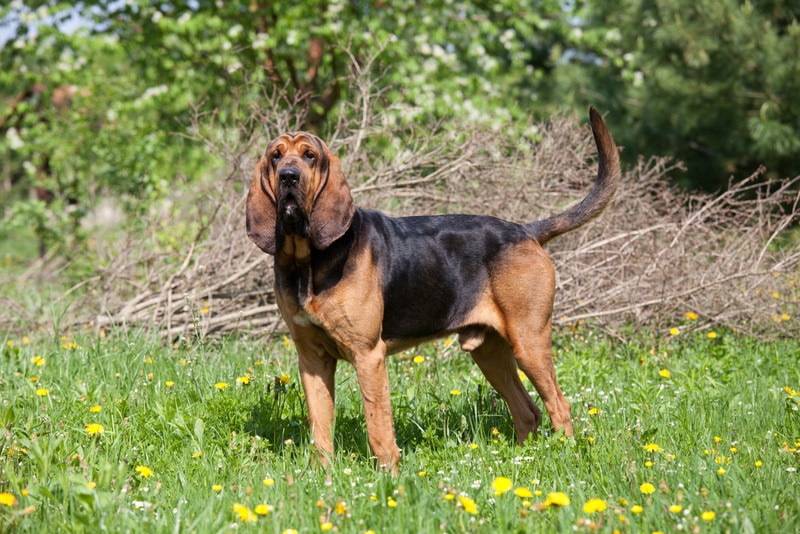How to Train a German Wirehaired Pointer: 8 Tips & Tricks
Updated on
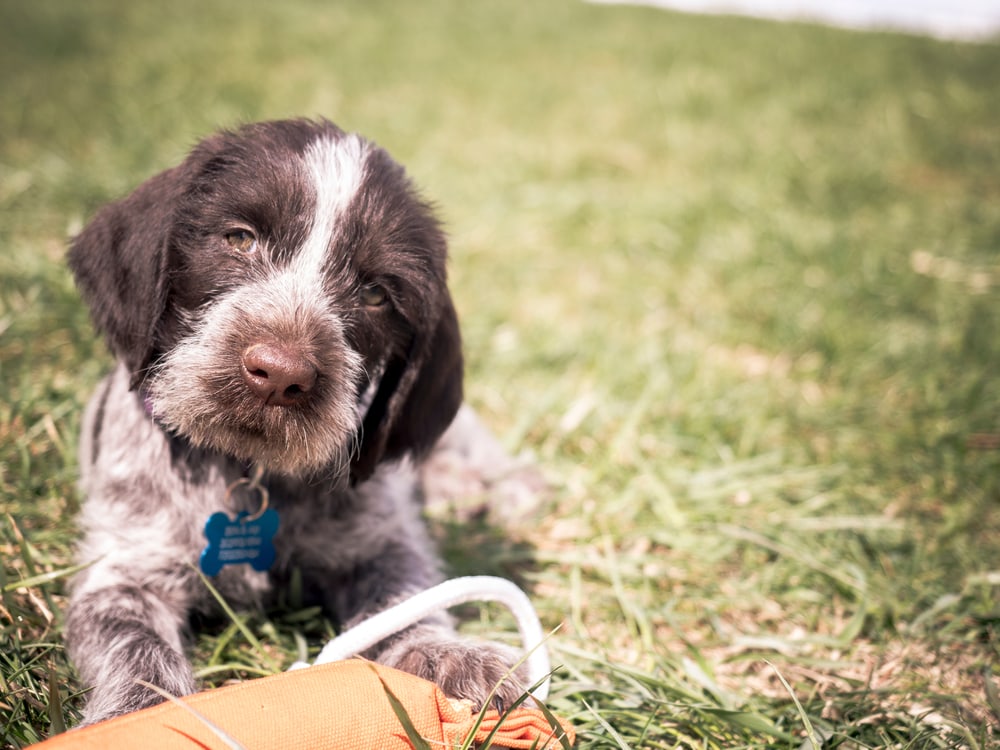
German Wirehaired Pointers are intelligent dogs that take easily to training. They were originally bred as versatile hunting dogs that were made to work closely with their humans to track down game. They were even used as retrieving dogs.
Their wiry coat and strong physique make them well-suited to outdoor activities. They’re very active dogs, making them best for active families. Without the proper training and exercise, these dogs can easily become hyperactive and misbehave in the house.
Therefore, it’s essential to train these dogs even if you don’t plan on hunting with them. Luckily, this isn’t terribly challenging.
The 8 Tips & Tricks on How to Train a German Wirehaired Pointer
1. Start with Socialization
You should start by socializing with your German Wirehaired Pointer from an early age. As soon as you bring your puppy home, begin to socialize them with lots of different people, animals, and places. You want them used to as many situations and people as possible, as this helps prevent behavioral issues caused by fear and anxiety.
While these dogs are friendly, they still require socialization. Without proper socialization, training won’t do you much good. A dog isn’t going to listen to commands when they are stressed or anxious.
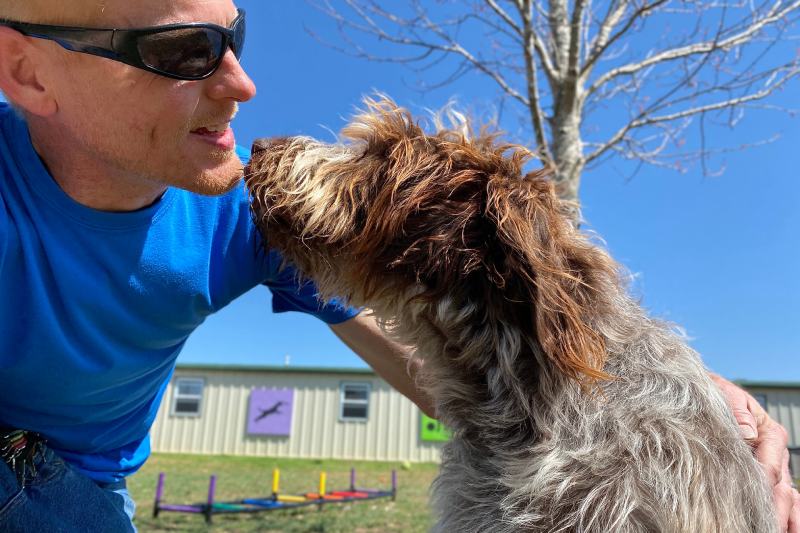
2. Use Positive Reinforcement
Furthermore, you should always use positive reinforcement when training these dogs. Alpha-dog theory was popular decades ago, but it has since been disproven. Instead, dogs do best when given rewards-based training.
This type of training works fairly simply. Whenever your dog does something you want them to do, you give them a reward. For most dogs, this is treats. However, some dogs are very play-driven and do best when rewarded with toys. For instance, you can make your dog sit before throwing their ball. That’s reward-based training, even if there are no treats involved.
You need to start very small. You wouldn’t expect a human to master a new skill right away, so you shouldn’t expect your dog to, either.
3. Be Consistent
As soon as you bring your German Wirehaired Pointer home, you need to start being consistent with the house rules and boundaries. Don’t think that your puppy is too young to learn—puppies are learning far before they are able to be separated from their mother and litter. Therefore, it’s vital that you establish boundaries and routines the day you bring your dog home.
Puppies are developing their idea of how the world works and what correct behavior is. You can help them grow into good dogs by keeping the boundaries consistent. This allows them to learn the boundaries faster.
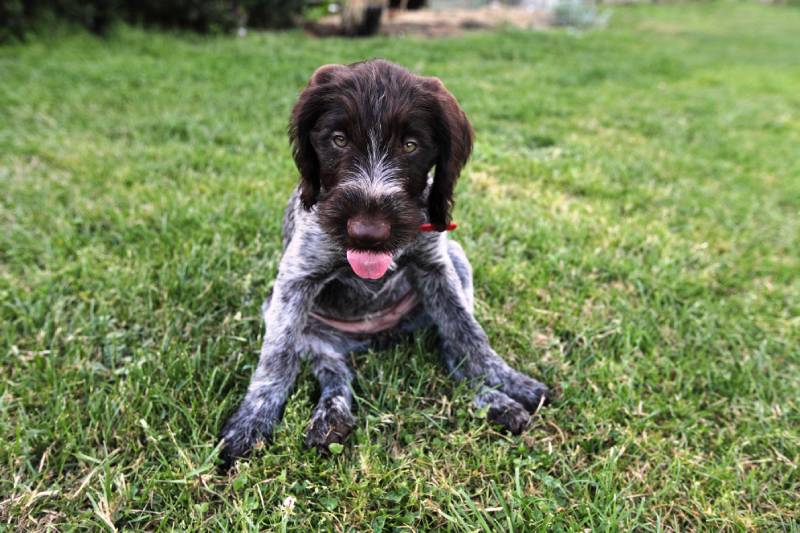
4. Introduce Formal Training
While socialization and consistent household rules are vital, you should also introduce your dog to formal training right away. Even very little puppies can learn to “sit,” though it may take them longer than an adult dog. At first, you’ll just be getting your dog used to formal training. You want your puppy to understand how commands and positive reinforcement work.
Start by teaching an “attention” command. This command is essential, though it is often not emphasized in many training plans. You’ll want to use the attention command to get your dog’s attention before you issue another command. It’s a way to tell your dog that you’re about to tell them something important.
You can teach attention rather simply. Start by showing your dog a treat. Then, put the treat in a closed fist and put it next to your face. As soon as your dog looks from your hand to your eyes, say whatever word you’re using for “attention” (many people choose “look”) and reward the dog. Slowly make it harder as your dog gets better.
Use this command to train your dog’s attention span and teach them to pay attention to you even when they get distracted. After they become good at paying attention, you can move on to other commands like “sit,” “stay,” and “come.”
5. Teach Leash Walking
You should also implement leash walking as soon as possible. When your puppy is very young, you should start by putting them on the leash around the house. Being on a leash can be weird for dogs at first, so it’s important that they’re used to it before you move on to actual leash walking. Plus, young puppies without their vaccinations shouldn’t be walked around much, as their chance of catching a disease is higher.
Once you’re ready to teach your dog to walk on a leash, you should start with the “heel” command. Begin with treats at your side, and walk while luring them to stay close. Use a command like “heel.” Reward them for walking alongside you without pulling.
If your dog pulls, stop walking. By continuing to walk when your dog pulls, you reward pulling.
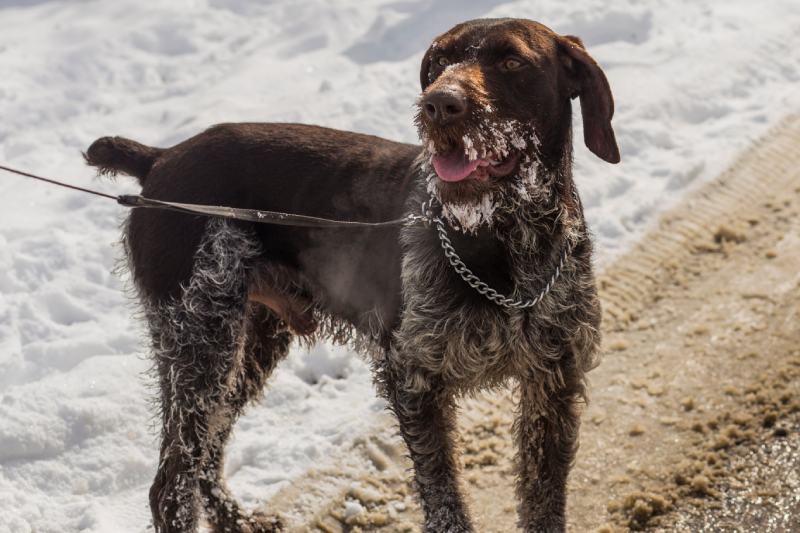
6. Play to Their Strengths
When it comes to advanced commands, you should play to your German Wirehaired Pointer’s strengths. For instance, German Wirehaired Pointers have a natural inclination to retrieve. Use a toy or ball and encourage them to pick it up. When they do, use the “bring it” or “fetch” command. Reward and praise them when they return the item to your hand. This activity is a great way to exercise your dog without wearing yourself out.
These dogs also like to hunt. Engage their instincts by introducing them to activities like scent work or tracking. Hide treats or toys around the yard or house and encourage them to find them using their keen sense of smell.
You can also introduce them to water, which should be done early and gradually. These dogs are adept swimmers, and many do enjoy a nice dip on a hot day. You can even play fetch in shallow water or try dock jumping.
7. Keep Training
Because these dogs are so intelligent, they can easily become bored. It’s vital that they are trained regularly to keep their mind active and give them something to do. This factor is one reason we recommend teaching them some of these advanced commands, as it gives them an opportunity for continuous training. They will never get bored of playing fetch or sniffing out treats.
Even if you think your dog is well-trained, you can’t stop training due to how easily they get bored. Therefore, these dogs are often considered somewhat high-maintenance.
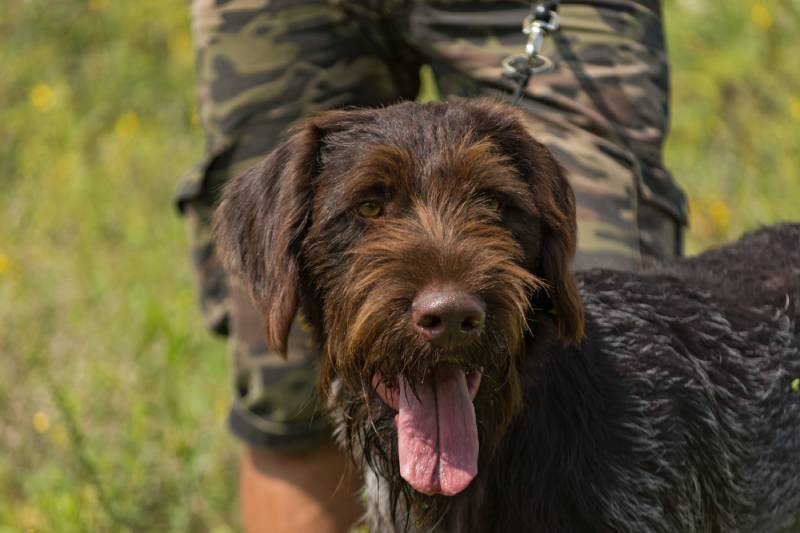
8. Don’t Forget Your Bond
Dogs only listen to their humans because they want to. In actuality, our dogs don’t have to do anything we say. It’s all voluntary. Therefore, developing a deep bond with your dog is important.
Spend quality time with your dog through walks, playtime, and cuddles. This will reinforce their loyalty and willingness to please. Use grooming sessions as a chance to bond, too. These put you into close contact with your dog, and you have to groom them anyway. Use the time to your advantage to make your training sessions go smoother.
Conclusion
Training your German Wirehaired Pointer isn’t difficult, but it is a lifelong practice. This isn’t something you do once and then never think about again. Training is simply teaching your dog how to behave and opening up some lines of communication. You’ll always be teaching your dog to behave. Just like children, they are watching you constantly.
It’s important to start training very early. Puppies are the easiest dogs to train, as they don’t have any bad habits yet. If you can avoid bad habits altogether, you’ll have a much easier time.
However, even if your dog is grown, you can still train them to behave well. These dogs are very intelligent and love to be mentally challenged. Therefore, training is often much easier than it is with other breeds.
Featured Image Credit: B. Shay, Shutterstock




